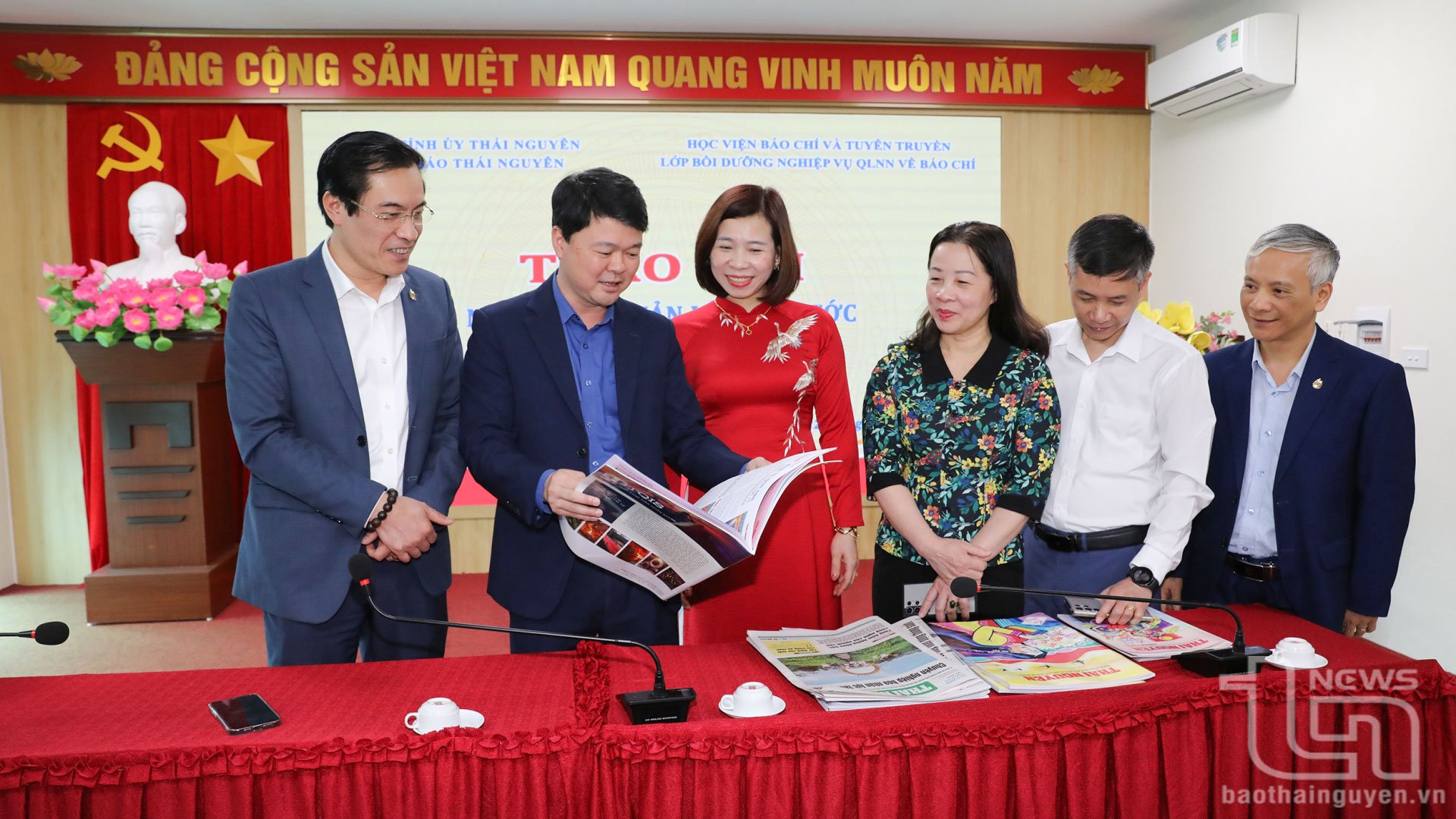 |
| Associate Professor, Dr. Nguyen Thi Truong Giang (3rd from left) , Deputy Director of the Academy of Journalism and Communication, discussed and conducted practical research at Thai Nguyen Newspaper. |
Associate Professor, Dr. Nguyen Thi Truong Giang: If in the past, the core requirements for journalists were patriotism, dedication, good writing ability and a firm grasp of traditional journalism, now those requirements have been expanded and raised to a new level.
Modern journalists are not only information transmitters but also multi-platform content producers who know how to combine text, images, sounds, videos , and graphics to tell stories in an engaging and vivid way. They need to be proficient in digital tools, understand social networks, have the ability to analyze data, grasp public trends, and interact two-way with readers. At the same time, in a chaotic information environment where truth and falsehood are mixed, ethical qualities, professional qualities, and the ability to assess and verify information become more important than ever.
In particular, journalists today need to have a multidisciplinary mindset, not only being good at journalism but also having a good understanding of economics, politics , society, culture, science, technology... to reflect issues comprehensively and in depth. They must know how to work in teams, cooperate with experts, the community, and even with artificial intelligence tools to create high-quality journalism products.
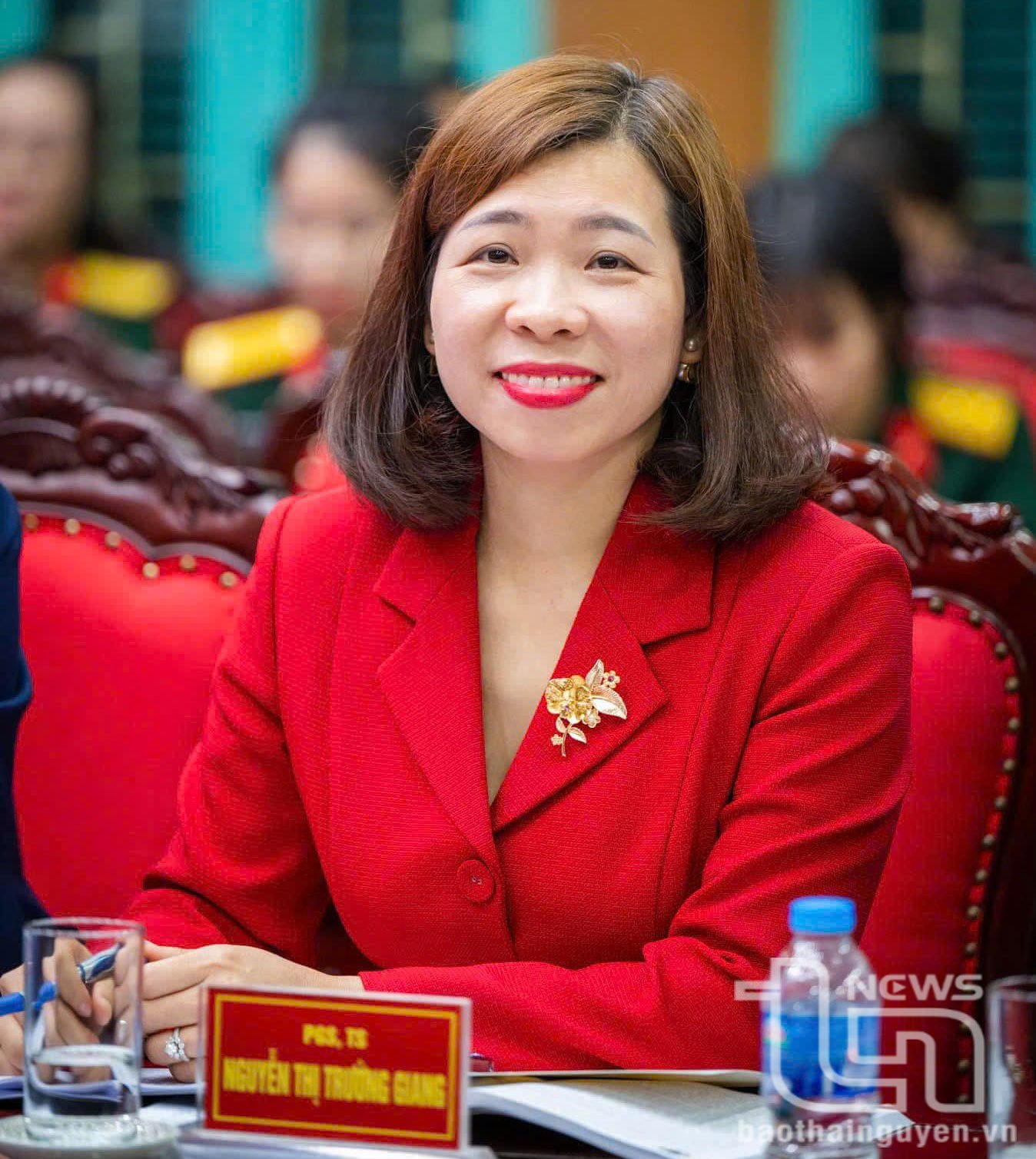 |
| Associate Professor, Dr. Nguyen Thi Truong Giang, Deputy Director of the Academy of Journalism and Communication. |
PV: In the face of the strong development of artificial intelligence (AI), especially automatic content creation tools, what orientations has the Academy of Journalism and Communication had to train journalism students to adapt and master technology?
Assoc. Prof. Dr. Nguyen Thi Truong Giang: We clearly identify that AI is not a threat to replace journalists, but a supporting tool, a resource for journalists to work more effectively, creatively and deeply. Therefore, in recent years, the school has been integrating modules and topics on AI applications into the training program. Students have access to tools to support content creation, data analysis, trend suggestions, grammar checking, translation, graphics, and automatic film editing. Instead of fearing being overtaken by AI, journalism students today need to be equipped with a mindset of being ready to cooperate with AI, turning AI into a "virtual colleague", to focus on the core values that only humans can bring: creativity, emotion, social responsibility, and humanity.
Innovating training programs, improving digital skills, developing thinking capacity and professional ethics - these are the three pillars that the Academy steadfastly implements, aiming to train generations of young journalists who are both skilled and proactive, flexible and steadfast in the digital age.
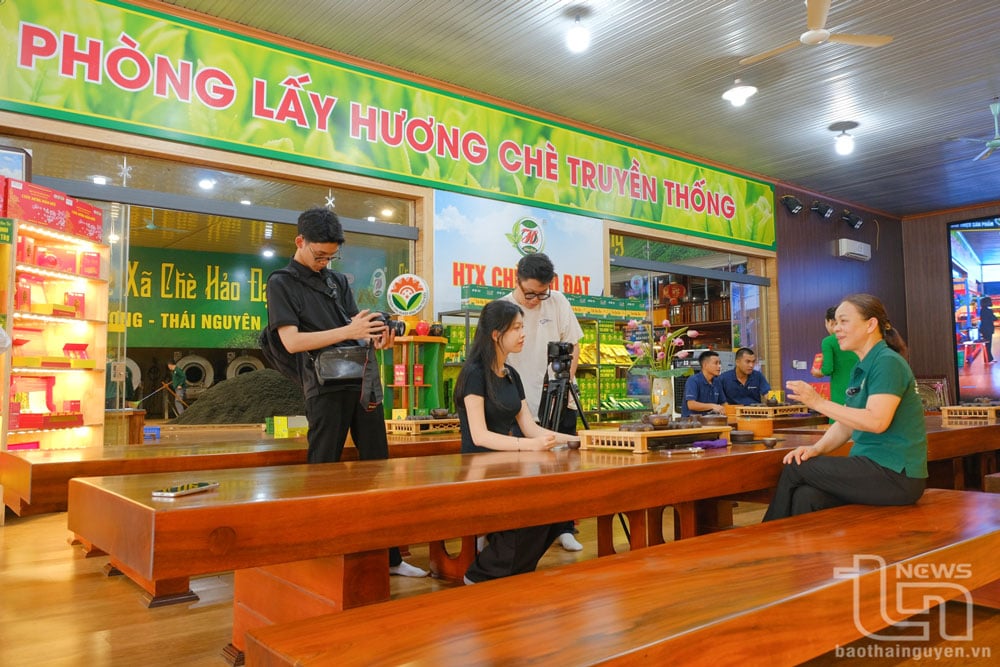 |
| Students of the Academy of Journalism and Propaganda work at Hao Dat Tea Cooperative. |
PV: According to Associate Professor, what changes does the School need to make to train not only journalists but also multi-talented media professionals? Associate Professor, what message do you have for young people who are studying and will study journalism?
Associate Professor, Dr. Nguyen Thi Truong Giang: We determine that we are not only training “journalists” but also training multi-talented media workers: able to write, film, edit, manage fanpages, operate YouTube channels, build communication campaigns, produce content for social networks, and even work with corporate communication projects, policy communication, and non-profit communication. The training program has been and is being expanded in an interdisciplinary direction, integrating knowledge of journalism, communication, marketing, etc.
To do that, the school must also strongly innovate teaching methods: increase learning through projects, practical practice, and connect with press agencies, businesses, and social organizations so that students can gain experience, practice improvisation skills, and problem solving skills...
The message I want to send to young people is: Journalism always needs people with courage, passion and creativity. Prepare yourself with a solid knowledge base, a diverse set of skills, a willingness to learn, adapt, and above all, a love for the profession, a desire to contribute to the community and society. When you have those things, the door to your career will open wide!
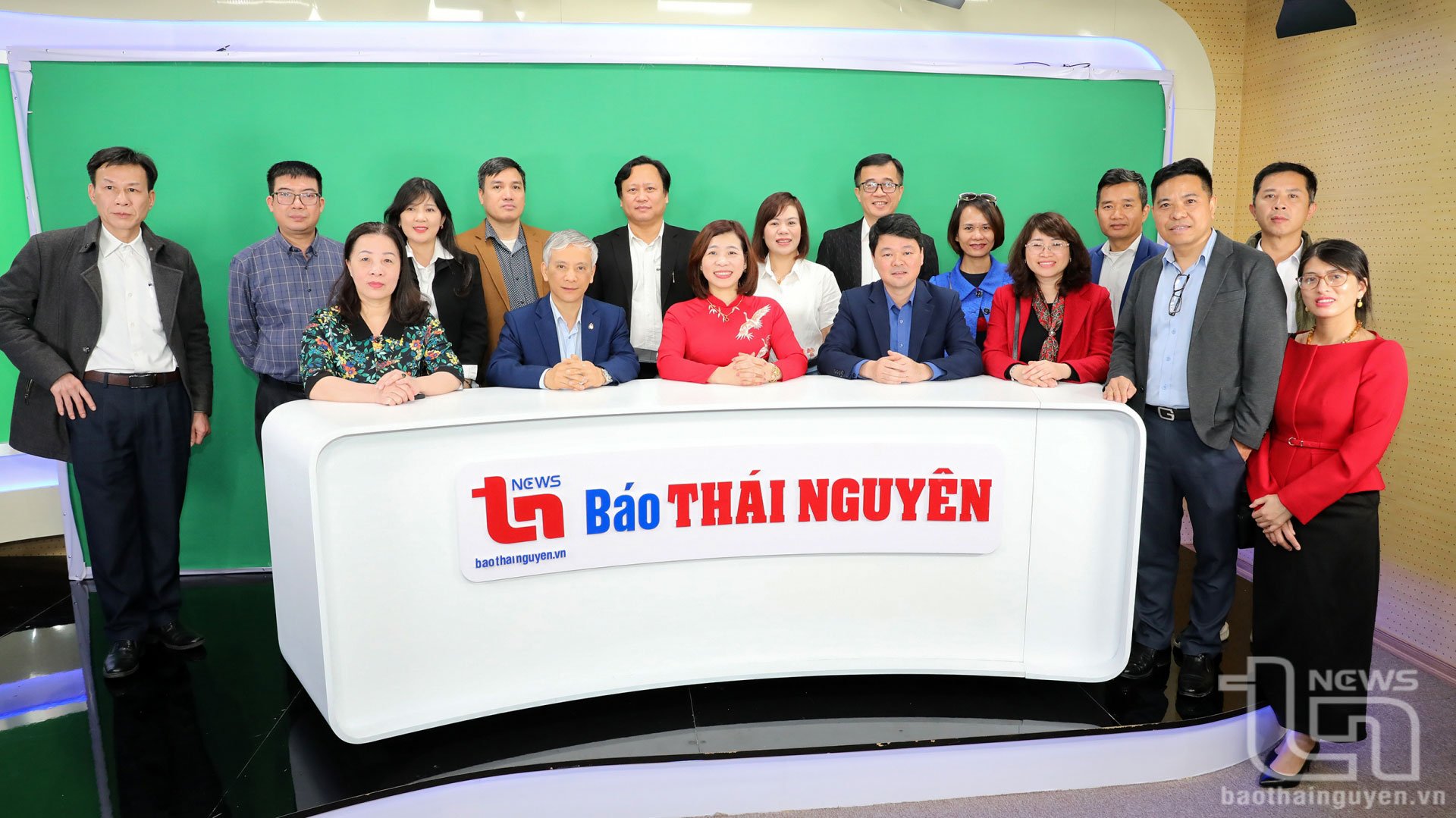 |
| Leaders of the Academy of Journalism and Communication exchanged and conducted practical research at Thai Nguyen Newspaper. |
PV: How do you evaluate the role of the School's connection with press agencies and technology enterprises in innovating training programs and creating practical opportunities for students?
Associate Professor, Dr. Nguyen Thi Truong Giang: Cooperation with press agencies helps the School grasp the practical needs of the profession, thereby adjusting and updating the training program in a timely manner. In addition, linking with technology enterprises helps students access advanced digital tools, platforms, and solutions, especially in the context of today's journalism that cannot be separated from technology. The companionship of enterprises helps the School not only train journalists but also modern media workers, ready to keep up with global trends.
The Academy of Journalism and Communication always attaches importance to expanding its cooperation network and building a training ecosystem closely linked to practice. This is the “key” for the school to innovate comprehensively, helping students graduate not only good at theory but also solid in skills, confidently integrating into the competitive labor market.
PV: Thank you, Associate Professor, Dr. Nguyen Truong Giang!
Source: https://baothainguyen.vn/xa-hoi/202506/dao-tao-bao-chi-huong-den-nguoi-lam-truyen-thong-da-nang-b7021c6/



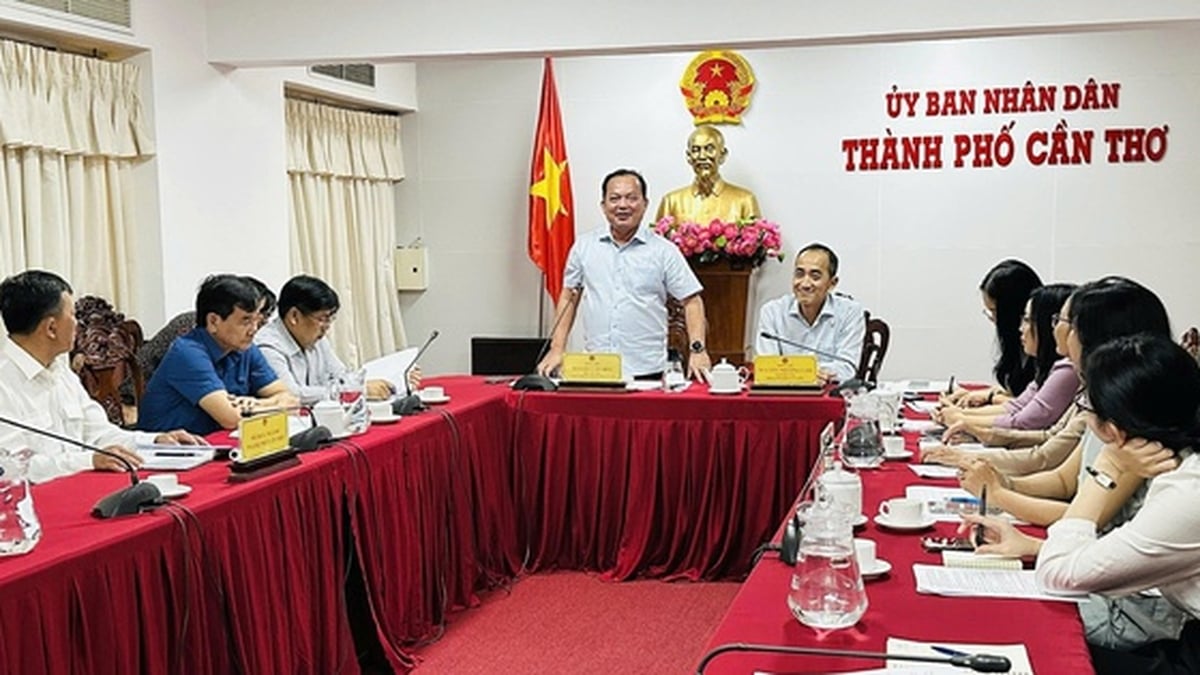

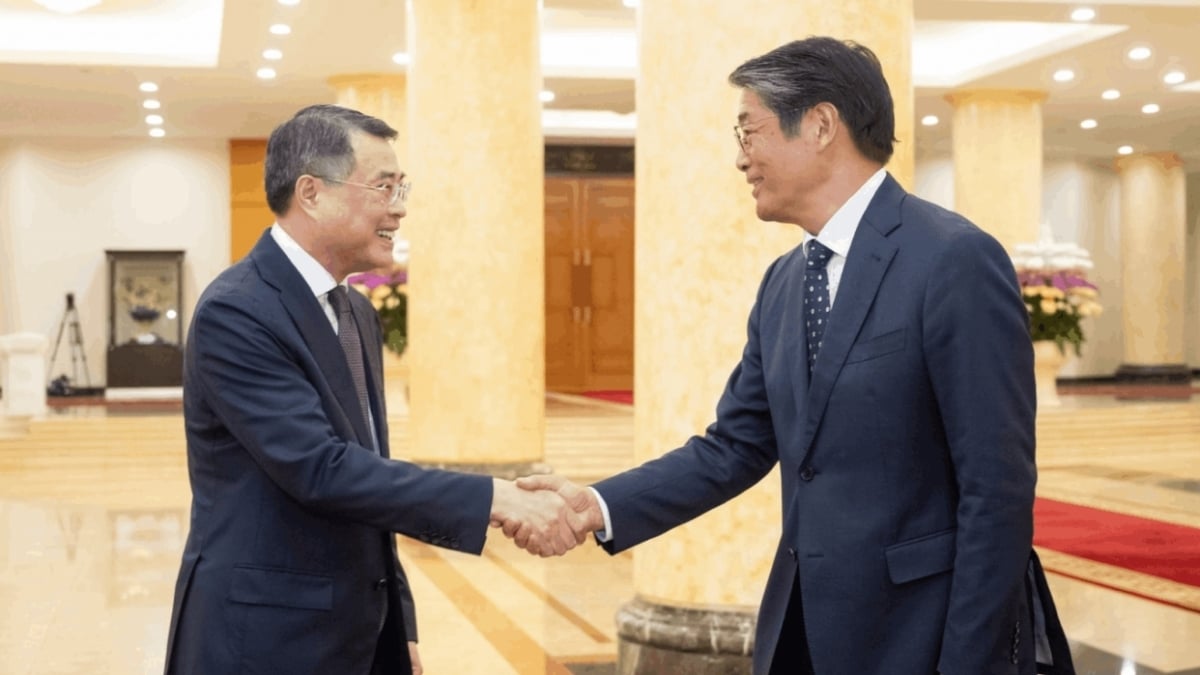
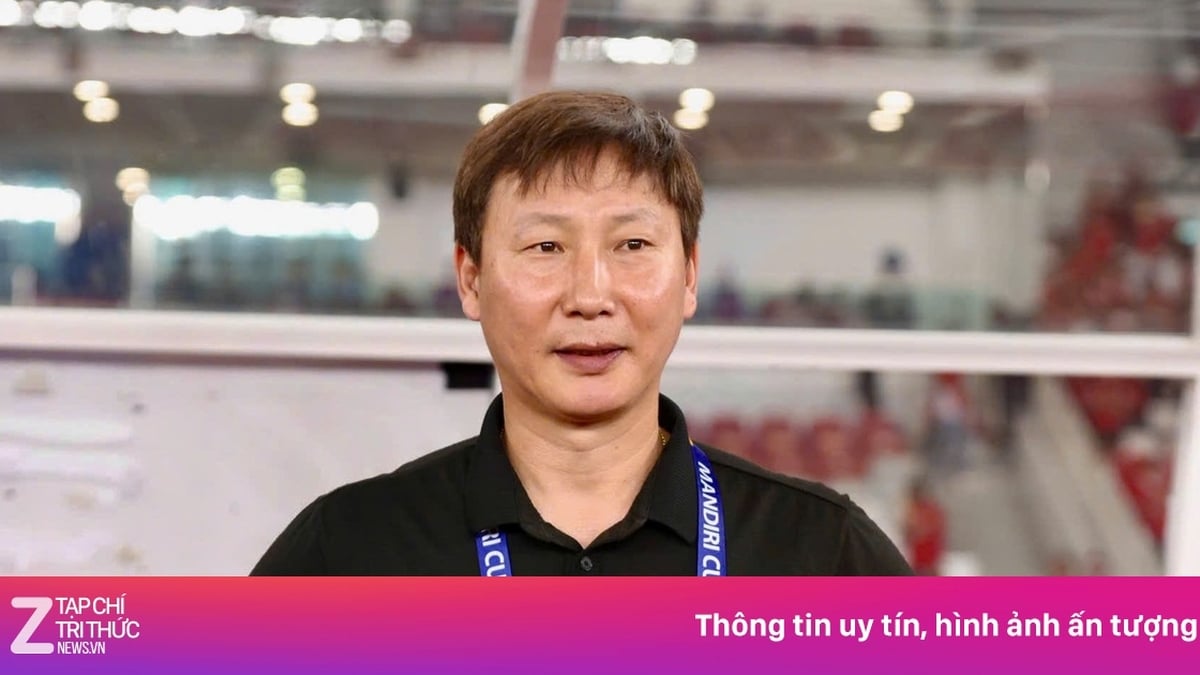

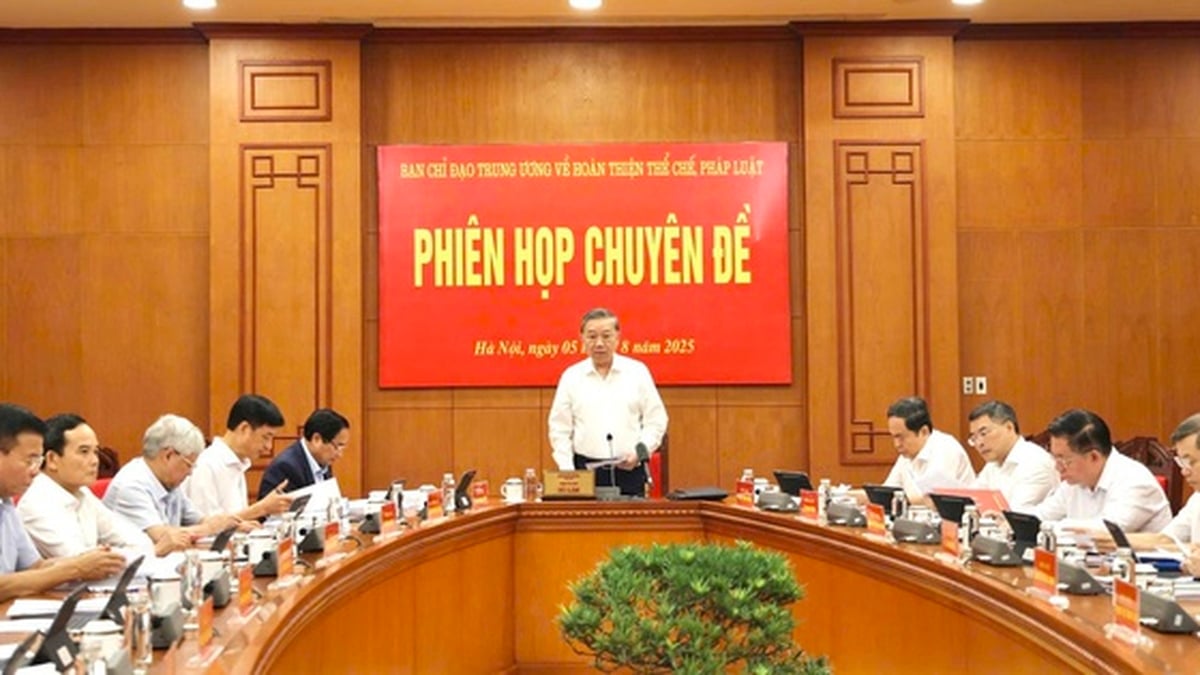
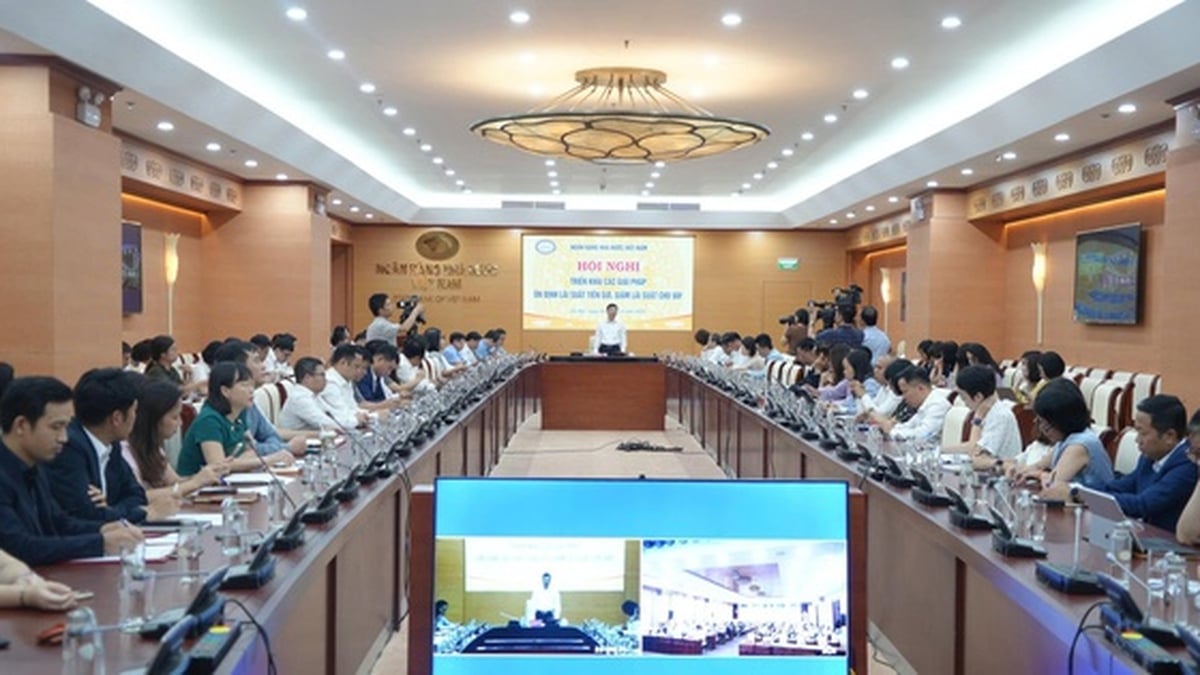

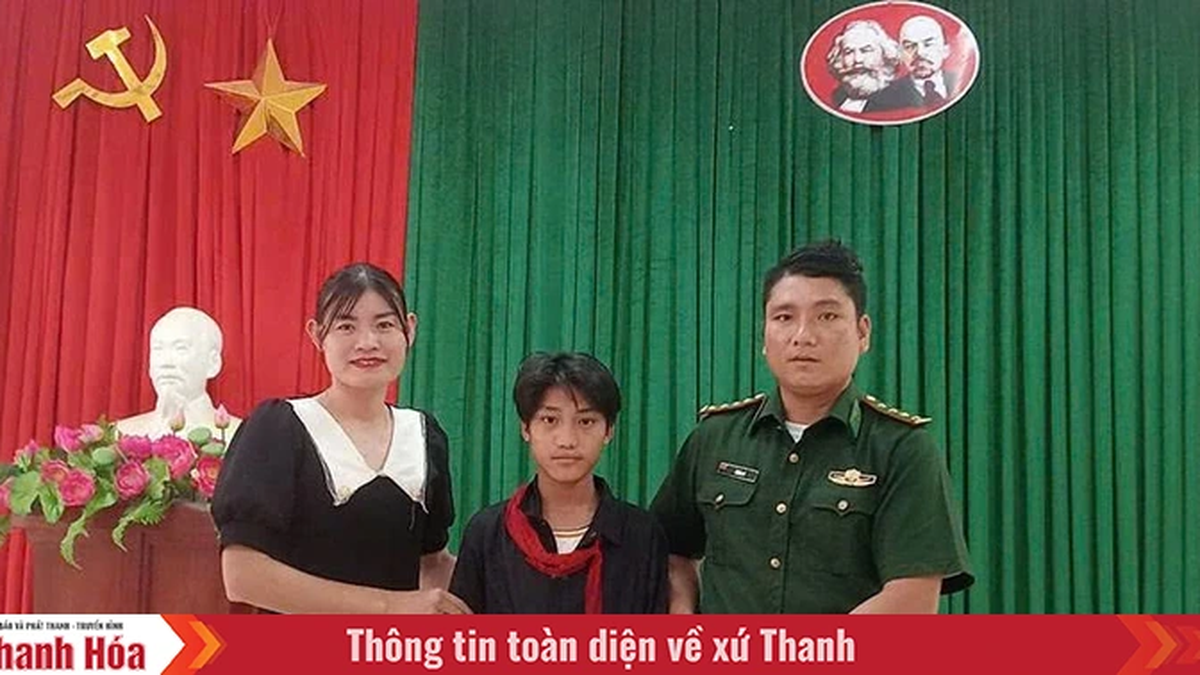












































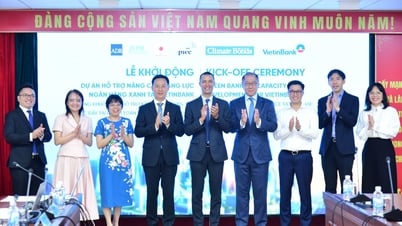




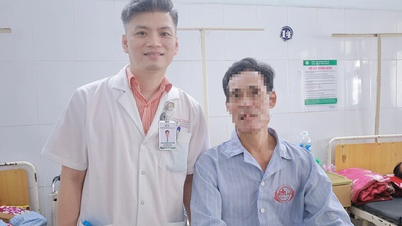
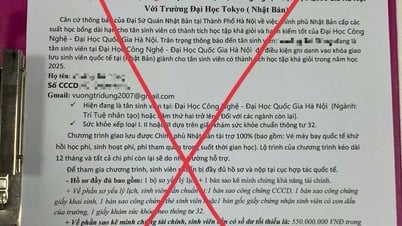



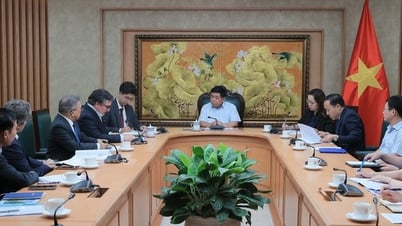


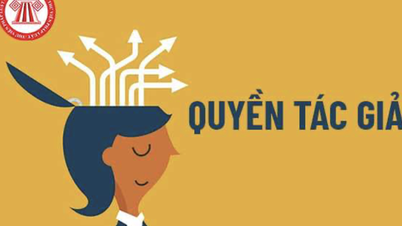

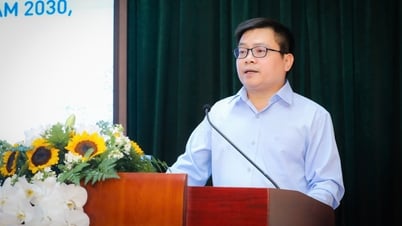


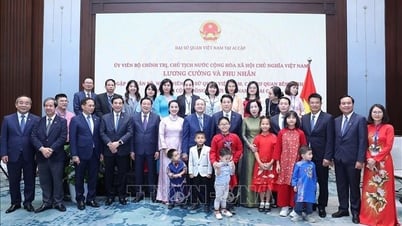

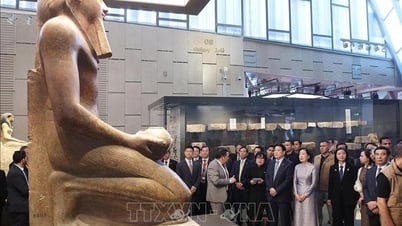






















Comment (0)